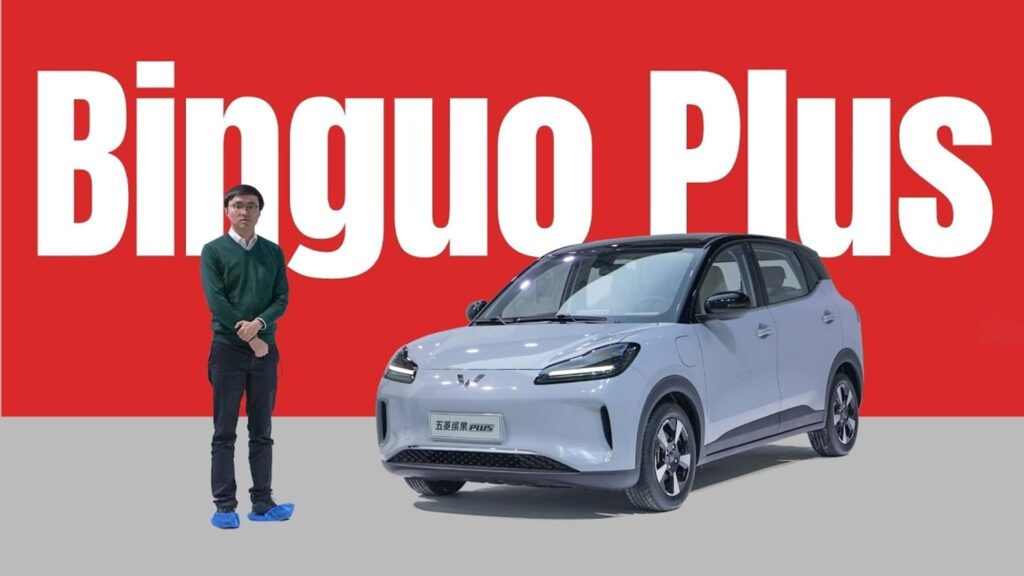I am so tired of watching brand after brand introduce reasonably priced, well-finished EVs, only for them to remain limited to other markets across the world. The Wuling Bingo Plus is yet another model that remains trapped on the other side of the world. However, this one feels worse, because Wuling is indirectly part of GM, which means there’s more of a snowball’s chance in hell that it could potentially be exported out of China. This video is from automotive presenter Sean, of the YouTube channel, Telescope.
Get Fully Charged
China Is Important to GM
GM has several joint ventures and brands in China, one of them being Wuling. Wuling sells models developed with GM and SAIC, including EVs. The Wuling Bingo is fighting neck and neck with budget offerings from BYD, selling more than 200,000 units in its first nine months of sale. The Bingo Plus adds more capability to the standard car and proves that GM does know how to build a competent cheap EV, just not for the US or Europe.
The original Wuling Bingo has been immensely successful for GM, SAIC, and Wuling, selling more than 200,000 units before its first full year of sale. Wuling Bingo Plus looks to build on that success, adding more substance and a slight crossover edge to the cutesy original. The lines are a bit more grown up, no doubt due to the stretched dimensions between the two cars. In all, the Bingo Plus is about four inches longer than the standard Bingo, but two of those inches go right to the car’s wheelbase. Add in the black plastic wheel arches and less curved roofline, and the Bingo Plus looks like a more grown-up car. The Bingo Plus isn’t a minicar, either. At 159 inches long, the Bingo Plus is about the same size as a Honda Fit.
Inside, the interior isn’t quite as retro-cute as before. The tandem-mounted twin-screen setup has been broken up into two distinct screens, and as a whole, the interior’s attitude is far more conservative this time around. Yet, the Bingo Plus retains an exceptionally deep trunk. Sean says that rear seat comfort has been improved by a rear bench that has been mounted higher than its sister car.
Under the skin, the Bingo Plus’s upgrades do add substance to the car. The standard Bingo was slow and couldn’t go all that far – limited to about 41 or 67 horsepower from either a 17.3 kWh or 31.9 kWh battery pack. It could only reach a top speed of 100 km/h, not even sufficient for China’s national freeway speed limit of 120 km/h. The Bingo Plus is way more powerful, its 100 horsepower motor should be able to propel the car to a top speed of 140 km/h (87 MPH). The 50.6 kWh battery is good for a maximum 510 KM (317 miles) range, way higher than the 333 KM (206 miles) maximum range of the standard Bingo. Granted, these are on the notoriously genteel CLTC cycle, but we’d wager an EPA range would probably be closer to the 200-mile mark.

The Bingo Plus seems to straddle the line between two different important competitors; the BYD Seagull and the BYD Dolphin. It’s larger, more expensive, and can go further than the Seagull, but Sean explains that doesn’t quite have the range or amenities as the BYD Dolphin. Like, the Dolphin may not quite go as far or won’t be as quick in base trim, but upgraded Dolphin models with bigger batteries and larger motors will handily out-accelerate the Bingo Plus.

There are other caveats to the Bingo Plus, too. Telescope admits that the Bingo Plus only seats four, compared to the five-seat interior of the Dolphin. It doesn’t have a heat pump, which likely will hurt its cold weather range performance. Also, although the Bingo has automatic headlights and automatic wipers, it has manual climate control. But, some of those caveats could be easily overlooked given the Bingo Plus’s price – about $12,500 for the top-trim Bingo Plus.
Videos like these are becoming harder to watch. The Bingo Plus’s existence proves that better things are possible. A reasonably sized, reasonably priced, well-made EV can exist, yet we don’t have them. Sure, the Bingo Plus won’t out-accelerate a Tesla, but it looks to be just the right size, range, and power to serve as a comfortable EV for those who don’t want or need an outrageous amount of capability.
Considering this is a GM-backed vehicle, I can’t help but wonder how hard this would be to make or sell in the U.S. What kind of safety features is it lacking? How hard would it be to add them? We’ll probably never know, unfortunately.

